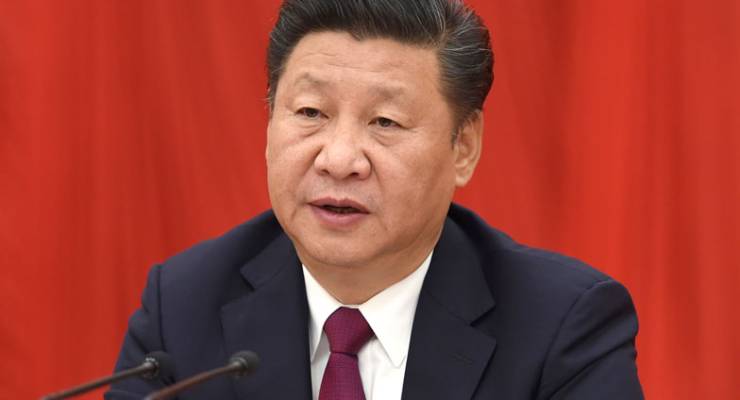
The all-powerful, all-knowing Chinese Communist Party (CCP) recently revealed that it had set up a branch at the University of California’s Davis campus. The news caused consternation among academics in the US and, indeed, around the world.
The intention was to create a branch that Chinese academics from around the US, who were concerned about the way China’s image was being projected, could join. Although it was dissolved within a week following fears its establishment might have breached local laws, its brief existence served as the latest reminder of the already significant network of soft power China wields through political donations, Chinese language media ownership and the blandly named — but immensely powerful — United Front Work Department (UFWD). It is unlikely to be the last such attempt.
Only days after the initial announcement The Australian Financial Review revealed that, despite earlier assurances to the contrary trumpeted by the Pollyannas in Australian academia, the CCP has ordered foreign-funded universities in China to install party units and grant decision-making powers to a party officials, reneging upon earlier promises to guarantee academic freedom to such institutions as President Xi Jinping strengthens political control over all levels of education.
This decision has a direct impact on Australia; with most major universities here having Chinese presence of varying sizes, this high-reward strategy has, “overnight”, become fraught with risk. There are also dozens of Chinese academics in Australia, some of whom may be like-minded with their colleagues at UC.
At the 19th Party Congress in October, Xi said, “Government, military, society and schools — north, south, east and west — the party is leader of all.”
Universities and colleges were an early target of Chinese soft power in the 21st century. Confucius Institutes began in 2004 to teach Chinese language and culture internationally. These centres have proliferated internationally, including in Australia, though a few institutions in Europe and the US sensed a thin end of the wedge, and ended their tenure.
Australia was the global pioneer in industrial scale international education, so it was no surprise that it was the first place where Chinese students protested en masse about teaching staff daring to reject the CCP’s propaganda that it owns the vast, resource-rich South China Sea, despite there being six other claimants closer.
And this is where the UFWD comes calling, headed by Politburo member Sun Chunlan, a rare female Chinese leader.
Gerry Groot, University of Adelaide professor and a leading expert on the UFWD, said that the intensification under Xi Jinping of UFWD programs aimed at overseas Chinese students:
“… indicates profound concerns within the CCP about ensuring that these sectors are contributing to the country’s political and social stability, as well as to its public image abroad. The Party also needs to prevent such individuals or groups from becoming actively rebellious or conduits of what it considers ‘polluting’ Western political ideals. The latter include ‘universal values’, electoral democracy, and academic freedom (including the right to critique the Party’s historical mistakes).”
The UFWD’s tentacles — often only noticed once damage is done — are everywhere. Wherever you see stories of repression of free speech and movement, repression of religion — especially the nasty Western imports of Christianity and Islam, whose combined numbers have now reached over 70 million in China — and of the wholesale repression and cultural destruction of Uighurs and Tibetans, you are seeing the United Front.
It’s for these reasons, allegedly, that publisher Allen & Unwin decided not to publish Professor Clive Hamilton’s exploration of Chinese soft power Silent Invasion: how China is turning Australia into a puppet state. It’s a win for the UFWD and other arms of the party regardless.
China hands are warning that this could have both immediate and long-term deleterious effects on academic freedom, and a deep and broad observation of China is critical for both Australia and the world.








Yep, that would be it and I swear every time I see another piece of Fairfax China crap I want to burn the SMH it came in. We need also to call out these China apologists like Bob Carr. China has sovereignty over who can work in Australia according to the ChFTA. I expect a lot of Chinese will be at the Adani site on that basis. CHina has no intention of playing by any kind of rules, as they have no rule of law and by Harry we need to remember that.
That’s a little bit rough on the SMH, Old GO. Peter Hartcher’s commentary piece in the SMH yesterday was entirely in agreement with Bernard’s piece here yesterday. If anything, more distrusting.
One suspects the One Belt One Road project is intended to transform plenty of countries into puppet states of China. Only a fool or a shill would doubt China’s neo-imperialist ambitions. The question is, what can stop them?
Perhaps we could start by banning ‘workers’ coming into this country from China?
That would include ALL academics, unless they can prove they have NO links with Chinese government organisations that wish to ignore academic freedom of thought and ideas.
The refusal to publish Clive Hamilton’s book is outrageous!!
The Han are quite keen nativists and would expect no less of us.
That we would act in our own best interests, and construe laws accordingly, would be unexceptional as they would, as currently, do the same.
Asian Wikipedia has a nice definition of a ‘united front’ as work to “rally as many allies as possible in order to… defeat a common enemy”. A more accurate definition in line with Marxist theory and the practice of united fronts might be ‘to rally and cooperate with useful idiots until you are strong enough to dispose of them and take over’. However since China is no longer Marxist but just a form of state capitalism with communist characteristics it seems a united front is now just another part of the security apparatus.